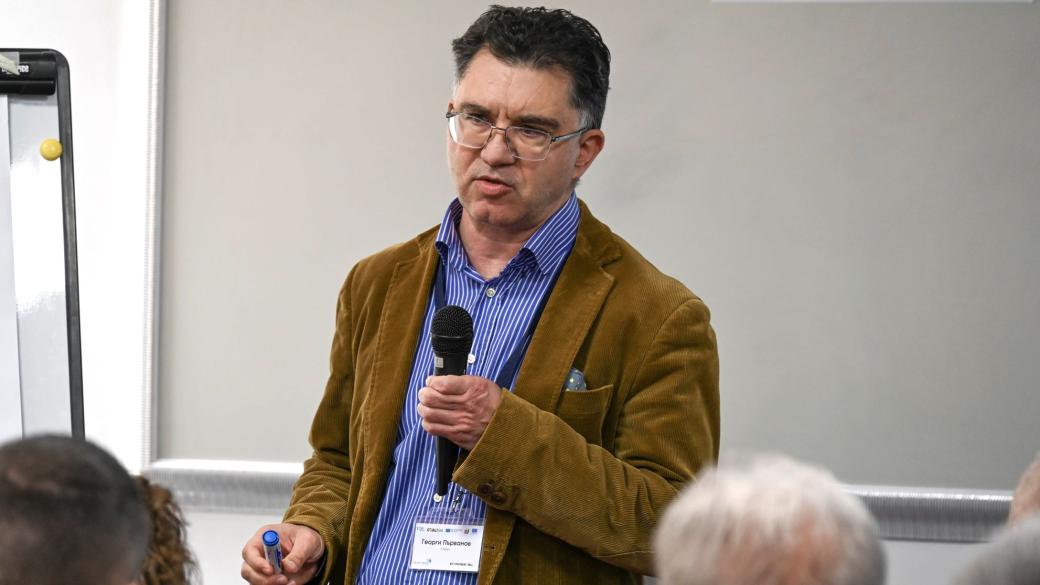The labor market in Stara Zagora is at a crossroads: Who will work tomorrow?
Worker imports from non-EU countries, returning Bulgarians from abroad, a rising "silver wave" and AI are changing the rules

© ECONOMIC.BG / Mirela Vavova
The labor market is at a crucial crossroads, the likes of which it has not seen for a long time – not only because of the rapid digitalization and the introduction of artificial intelligence, but also because of the green transformation. For traditional coal regions, which built their economy around fossil fuels decades ago, this moment is of even greater importance. And that is the case for Stara Zagora. This Bulgarian region faces serious challenges, but at the same time, promising opportunities.
Businesses and entrepreneurs in Stara Zagora need to be proactive, monitor these trends and adapt to new realities in order to remain competitive and ensure sustainable development of the regional economy, believes Georgi Parvanov, Executive Director of CTeam. During the “Opportunities for Entrepreneurship in Stara Zagora” seminar, he outlined several key trends that will shape the future of the workforce in the region and have a significant impact on local business and entrepreneurship.
Georgi Parvanov's advice to young people and those making a career change:
- Have a second job, different from your main one - learn new and flexible skills
- Learn a second foreign language, as English is now taken for granted
- Create a modern CV in a style different from the Europass CV Templates
- Be active in your job search
- Look for professions and areas of business that cannot be replaced by artificial intelligence (creative positions)
While competition for senior management positions remains high, the real shortage is felt in the middle (IT and technical specialists) and especially in the low-end segment (manual labor). The worrying fact is that even higher pay does not always motivate Bulgarians to occupy these positions, which raises serious questions about the future of certain industries in the region.
The solution to this problem seems increasingly clear: importing personnel from other countries. Parvanov presented data on the growing number of work permits issued in recent years and predicted that by 2025, the number of foreign workers in Bulgaria could reach an impressive figure. For Stara Zagora, this means that local businesses must actively prepare for the integration of these new employees, providing not only jobs but also conditions for their adaptation. Lessons from the experience of other countries, such as Poland, will be invaluable in this process.
Apart from this trend, another one is emerging – the gradual return of expat Bulgarians from abroad. Factors such as nostalgia, changing economic conditions and the targeted efforts of the Stara Zagora municipality to attract our compatriots back give hope of filling the labor market with a highly qualified workforce. However, a significant percentage of Bulgarians abroad have no plans to return, which emphasizes the need for a comprehensive approach to the labor force problem, Parvanov emphasized.
An often overlooked but increasingly important trend is the retention of people over 50 years of age in the labor market. Demographic changes are undeniable – the share of this age group in the population and the labor force is growing and will continue to grow. Parvanov emphasized that age is no longer an obstacle, and the experience and desire to work of these people can be a valuable resource for businesses in Stara Zagora.
Of course, technological advances, and especially artificial intelligence and robotics, will have a profound impact on the labor market. Parvanov predicts that routine and repetitive tasks will be automated in the coming years, and in the longer term, humanoid robots may even take up positions in the service sector. For businesses in Stara Zagora, this means the need to retrain employees and search for workers with skills that are difficult to replace by machines – creativity, critical thinking and emotional intelligence.
In this complex picture, employer branding takes on key importance. How companies in Stara Zagora present themselves as employers, what their reputation is, and how they treat their employees – current and former – will be decisive for attracting and retaining talent, according to the expert.
Happy employees are the most powerful advertising tool.”
For entrepreneurs in Stara Zagora, these trends present both challenges and opportunities. They must be flexible, invest in training and development of their teams, look for new ways to attract and retain talent, and not neglect the potential of older employees and returning Bulgarians. Also, recognizing the growing role of technology and preparing for its implementation will be essential for future success.
The labor market in Stara Zagora is undergoing a transformation. The success of local businesses and entrepreneurship will depend on their ability to adapt to these changes, to be innovative in their approaches to human resource management, and to see every challenge as a new opportunity for development.
Co-funded by the European Union. Views and opinions expressed are however those of the author(s) only and do not necessarily reflect those of the European Union or the Managing Authority. Neither the European Union nor the Managing Authority can be held responsible for them.
Translated by Tzvetozar Vincent Iolov


 Economic.bg
Economic.bg 